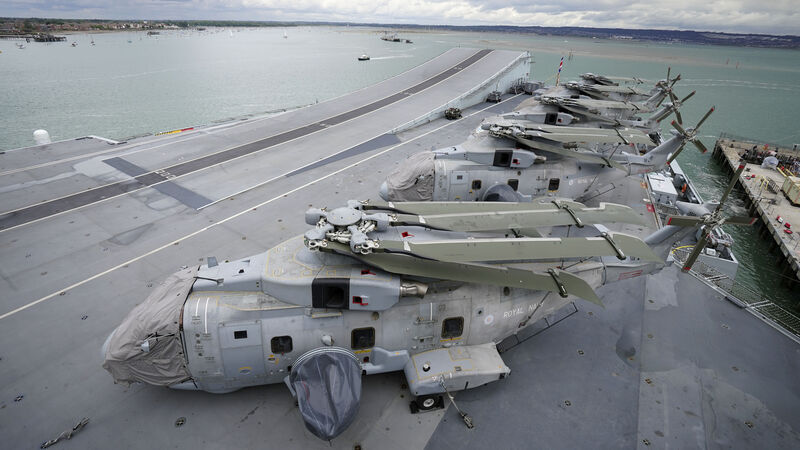UK, US and Australia form defence alliance 'Aukus' in bid to keep China in check

Royal Navy Merlin helicopters on the flight deck during Queen Elizabeth II’s visit to HMS Queen Elizabeth at HM Naval Base, Portsmouth. Picture: PA
The UK has announced a new defence partnership with the US and Australia as Western allies look to keep a check on China’s growing power in the Indo-Pacific.
In a joint statement on Wednesday evening, Prime Minister Boris Johnson, US President Joe Biden and Australian Prime Minister Scott Morrison confirmed the creation of a “new trilateral defence partnership”.











